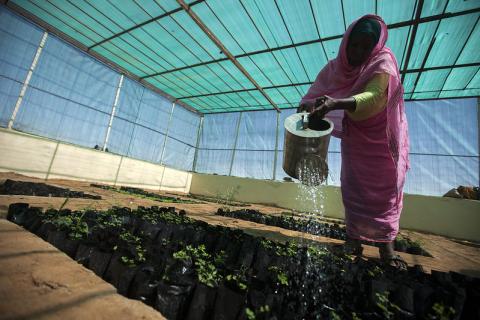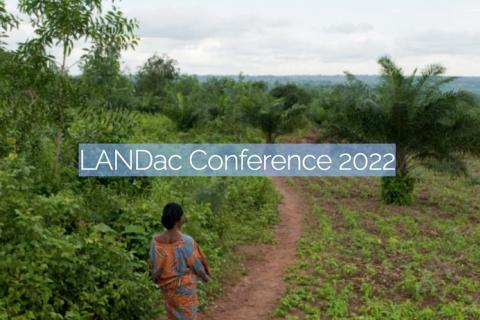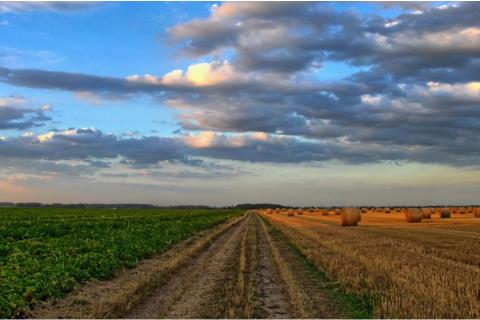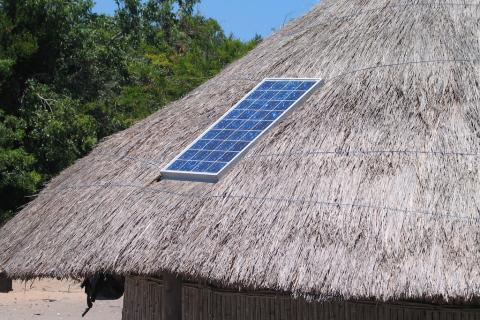Incorporating Climate Considerations Into Investment Assessment Processes: Guidance for National and Local Governments
Climate change poses an existential threat to ecosystems, with potentially far-reaching impacts on agriculture, forestry, wind and solar energy, and other land-based investments. These investments can also further exacerbate detrimental climate change impacts if they are not sustainably implemented.
From Data Fragmentation to Data Equity: Trends in Land Governance Data
The Land Portal Foundation, as a non-profit organization operating at the intersection of the open data and land governance communities, has been privileged over the past 5-8 years to be in a position to observe some interesting trends affecting the land governance data landscape.
Challenges and Opportunities in Monitoring Land Data for the Sustainable Development Goals
Land is a finite resource, and access to it is essential for the livelihoods of individuals and communities. To ensure that access to land is secure and equitable for all, the United Nations has set the Sustainable Development Goal (SDG) 1.4.2, which measures individuals' land tenure security, and SDG 5.a.1, which measures tenure security over agricultural land from a gender perspective.
Climate resilient land-use planning in Mozambique
From 6-18 November, Egypt will host the COP27 Climate Summit. This year marks the 30th anniversary of the adoption of the UN Framework Convention on Climate Change. Despite this long trajectory and the progress made, climate change has increasingly severe effects across the world. The LAND-at-scale program acknowledges the central role of climate change. In a short series of blogs, the knowledge management team highlights the diverse impact that climate change has on communities across the world, and how LAND-at-scale projects contribute to adaptation and mitigation measures on the ground.
Discussing Gender in LAND-at-scale projects
This blog describes the common trends and actions across the projects, and is enriched with additional insights from the LANDac Annual Conference 2022 and other events.
Governing land for the future: What (r)evolutions do we need?
The 13th Annual LANDac Annual Conference is taking place in person next week in Utrecht, Netherlands, for the first time since the COVID-19 pandemic began. All the conference sessions will also be accessible online to registered participants. LANDac brings together land governance stakeholders from around the world who might not otherwise meet, including academic researchers, the private, civil society, and policy makers.
We need a revolution in African farming — regenerative agriculture could be the catalyst
Daily Maverick Our Burning Planet: Op Ed by Malik Dasoo
Regenerative agriculture, which involves special techniques to cultivate nurture-rich soils that also trap greenhouse gases, can initially be time and labour intensive. But farmers who stick with it are witnessing enormous returns.
Indigenous peoples and local communities can save our forests: but governments must put them on the map
International Day of Forests: 21 March
A new study, published ahead of the International Day of Forests, warns that the Amazon is now nearing its tipping point; its ability to recover from disruption, such as droughts or fires, is rapidly reducing, increasing the risk of dieback of the Amazon rainforest and potentially releasing up to 90 billion tons of greenhouse gases into the atmosphere.
Kenya’s Digitization of Land Records Enhances its Capacity to Monitor and Report Progress on National, Regional and Global Development Commitments
In April 2021, Kenya, through the Ministry of Lands and Physical Planning (MoLPP) and the National Land Commission (NLC) achieved an unprecedented milestone in land management and administration by launching the National Land Information Management System (NLIMS) dubbed Ardhisasa.
Interview with Javier Molina Cruz: Taking the VGGT to the Next Level
Over the past nine years, the project on Supporting Implementation of the Voluntary Guidelines on the Responsible Governance of Tenure of Land, Fisheries and Forests (VGGT) has helped countries make political commitments towards the eradication of hunger, food insecurity, and malnutrition, with the explicit outcome of increasing awareness among decision makers, development partners, and society at large regarding access to natural resources. The Food a












